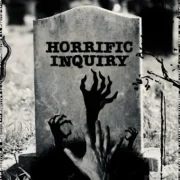What’s Your Favorite Oldie Film?
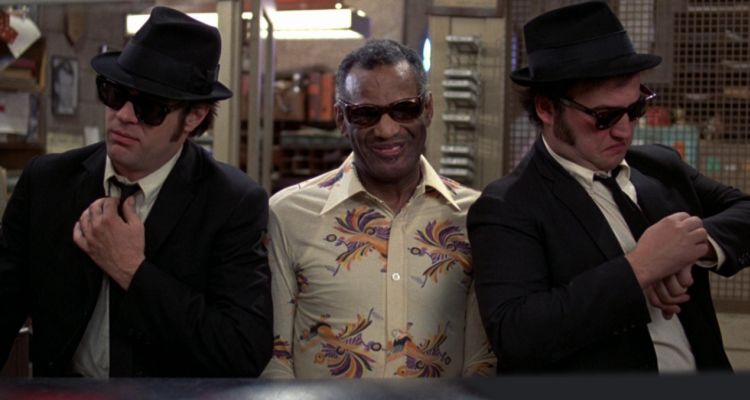
Manon de Reeper is the founder and CEO of Film…
And why is it your favorite?
Below, the team members of Film Inquiry answer the question, and we encourage you to do the same – join in the discussion in the comments section! For your information, we consider a movie an “oldie” when it’s older than 20 years.
Ben Roden: Jeremiah Johnson (1972)
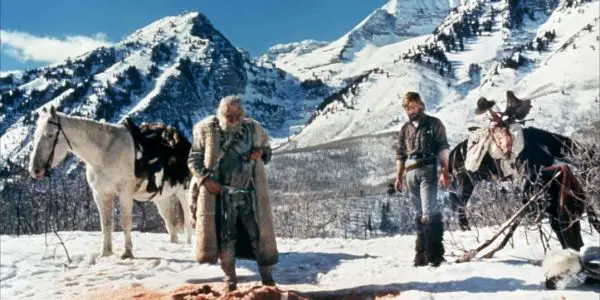
Before I tell you why Jeremiah Johnson is one of the best films ever made, I need to acknowledge and explain an overwhelming bias. There are two elements to my tilt; the first is a geographical connection. I grew up in the foothills of Utah’s Rocky Mountains, the setting of Pollack’s 1972 masterpiece, and there’s some sort of localized nostalgia at work each time I watch the film. The Wasatch range, where a large portion of the film was shot, was the backdrop of my childhood. I’ve slogged through snowy draws on the backside of Timpanogos and absorbed the sensation of majestic isolation that the mountain provides. Jeremiah’s sojourns are more than just interesting, they’re familiar.
Jeremiah Johnson is also eternally linked with memories of my father. On any given day, I would estimate that between 15 and 25 percent of my dad’s spoken discourse is in some way related to Jeremiah Johnson. The dialogue is minimal, but what’s there is awfully pithy – perfect ammunition for such Dad-classics as “watch your top-knot,” and “you’re the same dumb pilgrim I’ve been hearin’ for twenty days and smellin’ for three!”
The one-two punch of sentimentality aside, Jeremiah Johnson is awfully easy to recommend on its own terms. Robert Redford plays the titular character, a veteran of the Mexican American war who leaves “the flat” to make his fortune in the Rocky Mountains. To quote the charmingly cheesy singing that narrates the film’s opening, “he was bettin’ on forgettin’ all the troubles that he knew.”
Armed with little more than his intuition and a “genuine Hawken gun,” Jeremiah heads into the wilderness to ply his trade as a trapper. Initially beaten back by the harsh realities of the mountain man lifestyle, Jeremiah is taken under the wing of ‘Bear Claw’ Chris Lapp (Will Geer), a seasoned veteran who gives him a few pointers on survival. To tell much more would rob you of the meticulous unfolding of a plot which contains elements of loneliness, revenge and redemption.
Aside from some dated musical numbers and narration, the movie holds up well and feels surprisingly modern. It’s beautifully shot and colored, and as mentioned before, the script is dense and minimal, full of brief, meaningful interactions. Redford is fantastic. He simply has to be for this type of film to work – with the exception of a few colorful side-characters, Pollack balances the movie between Redford’s charisma and the majestic landscape. It’s a brave choice, and it’s great to watch. Although we’re given very little information about his past, Jeremiah is a vivid character whose warmth and humanity seem at odds with his impulse for solitude. The complex duality of the character extends to the film itself – it’s methodical without being boring, humorous yet tragic, adventurous yet contemplative.
For all the reasons I’ve detailed here, and some to which I’ve only alluded, Jeremiah Johnson makes me feel like a child again – what else can you ask for?
Kim Gamble: Jurassic Park (1993)
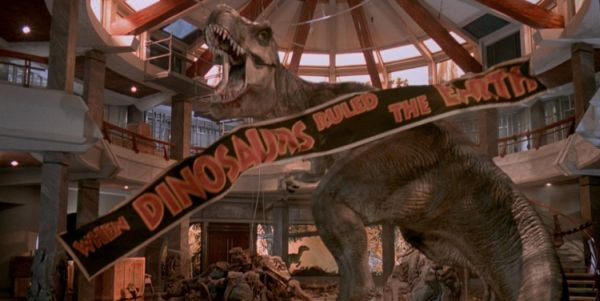
Steven Spielberg has directed/produced such masterpieces as E.T. the Extra-Terrestrial, all of the Indiana Jones films, and most recently the 2014 release Transformers: Age of Extinction. I have always been a fan of his films, but my all-time favorite is Jurassic Park. Who cares if the dino-facts are a little flawed? The movie is brilliant!
Filmed mostly on the magnificent islands of Hawaii, Jurassic Park takes us on the ride of a lifetime from conception to reality; a glimpse of what could actually happen if a scientist decided to bring life to long-extinct reptiles and create a theme park around it. This movie has everything: adventure, horror, comedy, romance, and of course, the incredible dinosaurs created by a highly talented team of animators and special effects artists.
“Paleontologist Jack Horner supervised the designs to help fulfill Spielberg’s desire to portray the dinosaurs as animals rather than monsters.” (Source: Wikipedia)
Not only were dinosaurs impressive, the soundtrack was awe-inspiring. Composer John Williams created the perfect atmosphere to depict the actions on and off the island. I don’t know anyone who doesn’t recognize the hypnotic melodies from “Theme from Jurassic Park” and “Journey to the Island.”
If first saw Jurassic Park in my early childhood and instantly fell in love with dinosaurs, specifically the T-Rex. I dreamt one day scientists would bring them back and I couldn’t wait to claim one as my pet. Now that I’m older, I find the thought frightening, but still somewhat exciting. Maybe only bring back a herbivore or two…
The newest addition to the franchise, Jurassic World, will be coming to the U.S. in June 2015. I couldn’t be more excited that the “Jurassic” films are still being produced and will be enjoyed by future generations.
Derrek Greene: The Blues Brothers (1980)
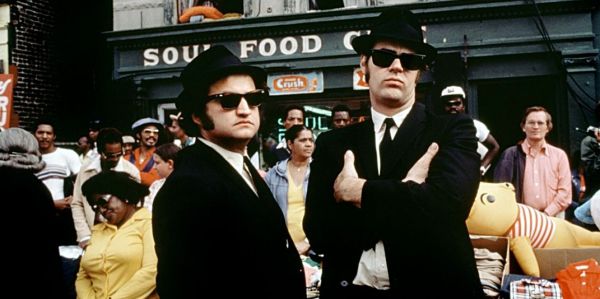
The Blues Brothers is a comedy and musical showcase directed by John Landis. Based on the Saturday Night Live sketches and portrayed by Dan Aykroyd (Elwood Blues) and John Belushi (“Joliet” Jake Blues), it’s a tour de force of crass comedy, quick talking, blues and soul music, and a menagerie of famous supporting actors and musicians. The opening dialogue alone gets me laughing every time. The boys find out their childhood home is at risk of closing. Taking the Lord’s name in vain and some reactive curse words drive Sister Mary Stigmata to whip and beat our heroes until they’re running (or in Belushi’s case, falling) down the stairs of the orphanage they grew up in.
Manon de Reeper: THX 1138 (1971)
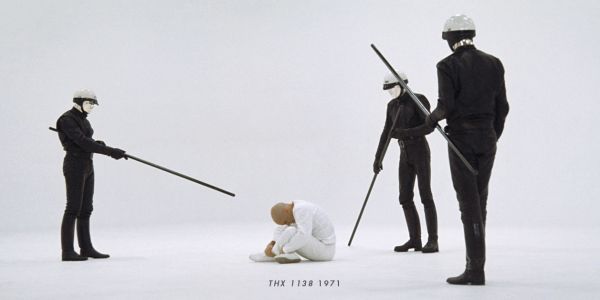
THX 1138 has a very special place in my heart. I only saw it for the first time in early 2013, when I was working on my MA thesis, in which I discussed developments in law enforcement and punishment and how these developments were portrayed in dystopian science fiction. The first time I saw the movie, I wasn’t overly impressed, but the second time I saw it, and performed a closer analysis, I came to know its true depths and subtleties, which aren’t apparent at first viewing, and I came to love it.
THX 1138 is the first film George Lucas ever directed – written by Lucas and Walter Murch in a socially revolutionary time in the U.S. It wasn’t well received at the time – compared to the popular sci-fi at the time, THX 1138 was noncomformably futuristic in its style; just consider the colorful sets and disco pants of Soylent Green and Logan’s Run, two other well-known dystopian science fiction films of the decade. THX 1138 still isn’t a popular sci-fi oldies, unfairly so, in my opinion. Stylistically, THX 1138 contains elements that are still featured in today’s science fiction films: the stark whites in the sets and costumes, the stiff body language of the drugged inhabitants of the dark, dystopian future, as well as the chrome-faced law enforcement robots.
You may argue that the story of THX 1138 wasn’t very original: the story was clearly borrowed from early dystopian science fiction like Huxley’s Brave New World and Orwell’s 1984. However, the added layers of social commentary covering the worries of the 70’s in particular, regarding freedom, punishment and its ethical implications, mass consumerism, religion, identity, et cetera, were remarkably critical. As screenwriter Walter Murch said in the documentary on the making of THX 1138:
“We were trying to investigate the ramifications of an unbridled consumer culture that has lost any connection with the organic world and is completely self-contained.” (Walter Murch in Artifact From The Future)
Science fiction is uniquely suited, as a genre, to discuss social issues, which is why it has always been my favorite genre. If you’re interested in uncovering the foundations of science fiction, and more specifically, dystopian science fiction, THX 1138 is a must-see. It’s one of my all-time favorite movies.
—
What do you think of our favorite oldies? Share your thoughts in the comments, and tell us about your favorite oldie, too, and why we need to watch it!
Don’t forget to share this article on your social networks! ^_^
Does content like this matter to you?
Become a Member and support film journalism. Unlock access to all of Film Inquiry`s great articles. Join a community of like-minded readers who are passionate about cinema - get access to our private members Network, give back to independent filmmakers, and more.
Manon de Reeper is the founder and CEO of Film Inquiry, and a screenwriter/producer. Her directorial debut, a horror short film, is forthcoming in 2021.








